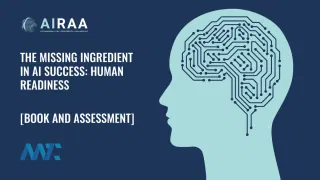A structured, time-limited, and evidence-based form of psychotherapy that focuses on identifying and modifying dysfunctional thought patterns, emotions, and behaviors. It is widely used to treat various mental health conditions, including depression, anxiety disorders, post-traumatic stress disorder (PTSD), obsessive-compulsive disorder (OCD), and more. CBT is based on the idea that thoughts, feelings, and behaviors are interconnected and that changing negative thought patterns can lead to healthier emotional responses and behaviors.
Key Principles of CBT
- Cognitive Restructuring: CBT helps individuals identify and challenge irrational or maladaptive thoughts (cognitive distortions) and replace them with more balanced and constructive thinking patterns.
- Behavioral Modification: Through techniques such as exposure therapy, activity scheduling, and behavioral experiments, CBT encourages individuals to engage in behaviors that promote mental well-being and reduce avoidance patterns.
- Skill-Building and Coping Strategies: Patients learn practical coping skills, such as problem-solving, stress management, and relaxation techniques, to handle challenging situations more effectively.
- Present-Focused and Goal-Oriented Approach: Unlike traditional psychoanalysis, CBT emphasizes current problems and practical solutions rather than exploring deep-seated past experiences.
- Collaborative and Structured Therapy: CBT involves a structured framework where therapists and clients work together to set goals and monitor progress. Homework assignments, such as journaling or practicing cognitive techniques, are often part of the therapy process.
Core Techniques Used in CBT
- Cognitive Restructuring (Reframing): Identifying and challenging negative thought patterns.
- Exposure Therapy: Gradual exposure to feared situations to reduce avoidance behaviors and anxiety.
- Behavioral Activation: Encouraging engagement in enjoyable or fulfilling activities to combat depression.
- Mindfulness and Relaxation Techniques: Incorporating mindfulness-based strategies to help with distress tolerance and emotional regulation.
- Self-Monitoring (Journaling): Keeping track of thoughts, emotions, and behaviors to identify patterns and triggers.
Applications of CBT
CBT is used to treat a variety of mental health conditions, including but not limited to:
- Depression: Helps individuals identify negative self-talk and develop healthier perspectives.
- Anxiety Disorders: Teaches coping mechanisms for generalized anxiety, social anxiety, phobias, and panic attacks.
- Post-Traumatic Stress Disorder (PTSD): Assists in processing traumatic memories and reducing distressing symptoms.
- Obsessive-Compulsive Disorder (OCD): Uses exposure and response prevention (ERP) to break compulsive behavior cycles.
- Substance Use Disorders: Supports relapse prevention by addressing thought patterns that contribute to substance use.
Effectiveness and Scientific Support
CBT is one of the most extensively researched and validated psychotherapies. Numerous clinical trials and meta-analyses have demonstrated its effectiveness in reducing symptoms of various psychological disorders. It is often recommended as a first-line treatment, either alone or in combination with medication, depending on the severity of the condition.
Conclusion
Cognitive-behavioral therapy (CBT) is a powerful and adaptable therapeutic approach that equips individuals with the skills to manage negative thoughts and behaviors. Its structured, goal-oriented nature makes it an accessible and effective treatment for a wide range of mental health concerns. With continued practice, the strategies learned in CBT can foster long-term emotional resilience and well-being.
